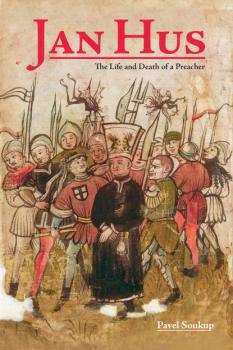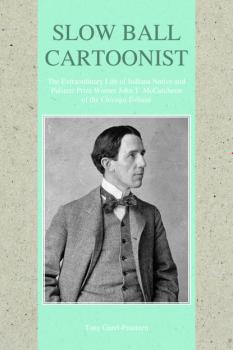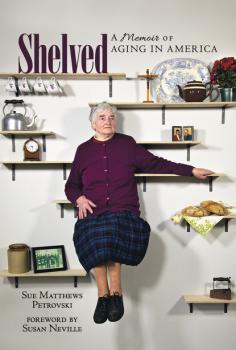ТОП просматриваемых книг сайта:
Биографии и Мемуары
Различные книги в жанре Биографии и Мемуары, доступные для чтения и скачиванияАннотация
March 4, 1861: On the day of Abraham Lincoln’s inauguration, the last thing anyone wants is any sort of hitch in the proceedings—let alone murder! Fortunately the president has young Adam Quinn by his side . . . Lincoln’s trusted entourage is on their guard. Allan Pinkerton, head of the president’s security team, is wary of potential assassins. And Lincoln’s oldest friend, Joshua Speed, is by his side, along with Speed’s nephew, Adam Quinn—called back from the Kansas frontier to serve as the president’s assistant and jack-of-all-trades. Despite the tight security, trouble comes nonetheless. A man is found stabbed to death in a nearby room, only yards from the president. Not wishing to cause alarm, Lincoln dispatches young Quinn to discreetly investigate. Though he is new to Washington, DC, he must navigate through high society, political personages, and a city preparing for war in order to solve the crime. He finds unexpected allies in a determined female journalist named Sophie Gates, and Dr. Hilton, a free man of color. Together they must make haste to apprehend a killer. Nothing less than the fate of the nation is at stake . . .
Аннотация
Eva and Otto is a true story about German opposition and resistance to Hitler as revealed through the early lives of Eva Lewinski Pfister (1910–1991) and Otto Pfister (1900–1985). It is an intimate and epic account of two Germans—Eva born Jewish, Otto born Catholic—who worked with a little-known German political group that resisted and fought against Hitler in Germany before 1933 and then in exile in Paris before the German invasion of France in May 1940. After their improbable escapes from separate internment and imprisonment in Europe, Eva obtained refuge in America in October 1940 where she worked to rescue other endangered political refugees, including Otto, with the help of Eleanor Roosevelt. As revealed in recently declassified records, Eva and Otto later engaged in different secret assignments with the US Office of Strategic Services (OSS) in support of the Allied war effort. Despite their vastly different backgrounds, Eva and Otto gave each other hope and strength as they acted upon what they understood to be an ethical duty to help others threatened by fascism. The book provides a sobering insight into the personal risks and costs of a commitment to that duty. Their unusually beautiful writing—directed to each other in diaries and correspondence during two long periods of wartime separation—also reveals an unlikely and inspiring love story.
Аннотация
Jan Hus was a late medieval Czech university master and popular preacher who was condemned at the Council of Constance and burned at the stake as a heretic in 1415. Thanks to his contemporary influence and his posthumous fame in the Hussite movement and beyond, Hus has become one of the best known figures of the Czech past and one of the most prominent reformers of medieval Europe as a whole. This definitive biography now available in English opposes the view of Hus that saw his importance primarily as a martyr, subsequently invoked by a variety of religious, national, and political groups eager to appropriate his legacy. Looking for Hus’s significance in his own time, this treatment tells a story of a late medieval intellectual who—through his dedicated pursuit of what he understood as his mission—generated conflict and eventually brought execution upon himself. By investigating the life and death of Jan Hus, one learns not only about the man, but about the church, state, and society in late medieval Europe. The story told in this book is original in structure and purpose. Each chapter takes a major event in Hus’s life as a starting point for a broader discussion of crucial problems connected to his career and the controversies he generated. How did these specific events contribute to Hus’s own convictions? By suggesting parallels to and departures from other late medieval figures and events in Europe, the book liberates Hus from a narrow and nationalist Czech historiography and places him squarely in a broader European context, showing a significance that transcended Czech borders. From a number of different vantage points, it raises a central question critical to understanding the later Middle Ages: why was a sincere ecclesiastical reformer condemned by a church council committed to reform itself?
Информация о книге
Автор произведения Pavel Soukup
Жанр Биографии и Мемуары
Серия Central european studies
Аннотация
In My Mother’s House depicts a profound, intergenerational struggle between a powerful, politically engaged mother, Rose, and her spiritually inclined poet and writer daughter, Kim. Framing this collision are two other generations. There is Rose’s mother from the shtetl, a broken woman regularly beaten by her husband but the source of the family’s stories. And Kim’s daughter, a second-generation, fully assimilated girl of eight at the time the book begins. Four generations, from the shtetl to an affluent intellectual household in Berkeley, California, the story is a historical record and reckoning between the old activist left and a beginning feminist movement. The double narrative allows Kim to explore the evolving relationship between mother and daughter, who, through their storytelling, are brought to a profound understanding and reconciliation.
Аннотация
This English-language translation of Mark Hengerer's <i>Kaiser Ferdinand III: 1608</i>–<i>1657 Eine Biographie</i> is based on an analysis of the weekly reports sent by the papal nuncio’s office to the Vatican. These reports give detailed information about the daily whereabouts of the dynasty, courtiers, and foreign visitors, and they contain the gossip of the court in addition to weekly analysis of some political problems. This material enabled the author to report on daily life of the dynasty and to analyze the circumstances under which policy was made, which has led to a balance between the personality of Ferdinand III and the problems with which he dealt. In this biography, Hengerer provides answers to the question: Why did it take the emperor more than ten years to end a devastating war, the traumatizing effects of which on central Europe lasted into the twentieth century, particularly since there was no hope of victory against his foreign adversaries from the very moment he came into power? <br>
Информация о книге
Автор произведения Mark Hengerer
Жанр Биографии и Мемуары
Серия Central european studies
Аннотация
The late J. Kirby Risk II called himself «a small-town businessman from the banks of the Wabash.» He was much more. The fastidious, dapper man from Lafayette, Indiana, exuded philanthropy and free enterprise. Like a sheepdog, he tended the flock, rounded up strays, darted to key places to close up stragglers, and nudged everyone toward a common goal. Sometimes his stubborn persistence caused clashes. His demanding behavior was for good, no matter what others thought. That was Kirby's way. Kirby's integrity was the basis for his two occupations. His first career was compassion, and his second career was the building of the battery company he cofounded in 1926 with $500 borrowed from his father. Today, Kirby Risk Corporation is a multimillion-dollar electrical products and services industry headquartered in Lafayette, Indiana, and led by Kirby's son, Jim. Kirby's Way captures the essence of this imitable gentleman, who with his wife of fifty-five years, Caroline, raised four children, gave time, money, and meals to strangers, refugees, Purdue University students, and their beloved community, while building from their kitchen table a successful Midwest corporation. He believed in «sacrificial service.» Kirby noticed people. He recognized their importance. In turn, they loved him and wanted to help him. He dwelled on his favorite song, «Mankind is My Business.» Relationships shaped his success. Kirby was quiet about his deeds. He lived the Bible passage, Matthew 6:3-"But when you do a kindness to someone, do it secretly-do not tell your left hand what your right hand is doing." Kirby Risk may not have wanted this book. Yet he would have esteemed it as a parable, a spiritual truth that compels readers to discover certainties for themselves. From heaven, he tends the flock and rounds up strays, so more people might live Kirby's Way.
Аннотация
The Midas of the Wabash is a biography of noted businessman John Purdue (1802-1876), whose donations of time and money led to the founding of Indiana's land grant university, Purdue University, in 1869. Purdue also contributed to economically important bridge, railroad, and cemetery construction, the existence of Lafayette Savings Bank and the Battle Ground Collegiate Institute, cattle farming, Lafayette's public school system, and countless other worthy enterprises. This is the first published full length study of Mr. Purdue's life and work beyond casual street-talk that portrayed Purdue as a difficult individual with whom to work. This biography incorporates research efforts by previous writers with facts gleaned from newspaper coverage, official documents, and a few rare samples of Mr. Purdue's letters. In this way, a complete picture of the man and myth is generated.
Аннотация
Slow Ball Cartoonist takes readers on a journey to an earlier era in America when cartoonists played a pivotal role each day in enabling major daily newspapers to touch the lives of their readers. No American cartoonist was more influential than the Chicago Tribune's John T. McCutcheon-the plainspoken Indiana native and Purdue University graduate whose charming and delightful cartoons graced the pages of the newspaper from 1903 until his retirement in 1946.<br>This book chronicles McCutcheon's adventure-filled life, from his birth on a rural small farm near Lafayette in 1870, to his rise as the «Dean of American Cartoonists.» His famous cartoon, Injun Summer, originally published in 1907, was a celebration of autumn through childlike imagination and made an annual appearance in the Tribune each fall for decades. McCutcheon was the first Tribune staff member to earn the coveted Pulitzer Prize for his poignant 1931 cartoon about a victim of bank failure at the height of the Great Depression. Born with an itch for adventure, McCutcheon served as a World War I correspondent, combat artist, occasional feature writer, portrait artist, and world traveler.<br>While the gangly and tall McCutcheon looked the part of the down-home characters featured in his cartoons, the world-wise flavor of his work influenced public opinion while making readers smile. Hard-hitting and even vicious attacks on public figures were common among his contemporaries; however, McCutcheon's gentle humor provided a change in pace, thus prompting a colleague to borrow a phrase from baseball and anoint him «the slow ball cartoonist.»<br>Slow Ball Cartoonist is a timeless story about a humble man who made the most of his talents and lived life to the fullest, being respectful and fair to all-including the targets of his cartoonist's pen.
Аннотация
Sue Petrovski has always been capable, thoughtful, and productive. After retiring from a long and successful career in education, she published two books, ran an antiques business, and volunteered in her community. When her mother was diagnosed with Alzheimer's disease and until her death eight years later, Petrovski served as her primary caregiver. She even cared for her husband when he also succumbed to dementia. However, when Petrovski's husband fell ill with sepsis at the age of eighty-two, it threw everything into question. Would he survive? And if so, would she be able to care for him and manage the family home where they had lived for forty-seven years? More importantly, how long would she be able to do so? After making the decision to sell their house and move into a senior living community, Petrovski found herself thrust into the corporate care model of elder services available in the United States. In <i>Shelved: A Memoir of Aging in America,</i> she reflects on the move and the benefits and deficits of American for-profit elder care. Petrovski draws on extensive research that demonstrates the cultural value of our elders and their potential for leading vital, creative lives, especially when given opportunities to do so, offering a cogent, well-informed critique of elder care options in this country. <i>Shelved</i> provides readers with a personal account of what it is like to leave a family home and enter a new world where everyone is old and where decisions like where to sit in the dining room fall to low-level corporate managers. Showcasing the benefits of communal living as well as the frustrations of having decisions about meals, public spaces, and governance driven by the bottom line, Petrovski delivers compelling suggestions for the transformation of an elder care system that more often than not condescends to older adults into one that puts people first-a change that would benefit us all, whether we are forty, sixty, eighty, or beyond.
Аннотация
This fascinating autobiography is set against the backdrop of some of the most dramatic episodes of the twentieth century. It is the story of a stubborn struggle against unjust regimes, sustained by a deep belief in the strength of the human spirit and the transcendental power of music. It is also an account of a rich spiritual life, during which the author has built upon her Jewish roots through the study of Eastern philosophy and meditation. Born in Germany, Eva Mayer Schay's early childhood in Mallorca was an idyllic one. Her parents had emigrated to the island following the Nazi party's rise to power, but in 1936, during the Spanish Civil War, the family was repatriated to Germany. Her father was arrested and given the choice of concentration camp or departing for Italy. They managed to leave Mussolini's Italy for South Africa before the race laws were implemented. During World War II, Mayer Schay's parents were classed as «enemy aliens» in South Africa, which led to considerable hardship. Her father died in 1945, after the end of the war. She went through all her schooling and university in Johannesburg, continued her musical studies in London, and after returning to Johannesburg, taught violin, played chamber music, and became a member of the SABC Symphony Orchestra. Defying apartheid, she was fired, later reinstated, but left Johannesburg to play with the Durban Civic Orchestra in 1959. Appalled at the increasing harshness of the nationalist government and by the Sharpeville massacre in 1960, she and her mother finally emigrated to England in 1961.In London, Mayer Schay worked as freelance violinist and was married in 1967. In September 1968, she joined the orchestra of Sadler's Wells Opera at the Coliseum Theatre, later renamed English National Opera, where she remained for almost thirty years.










